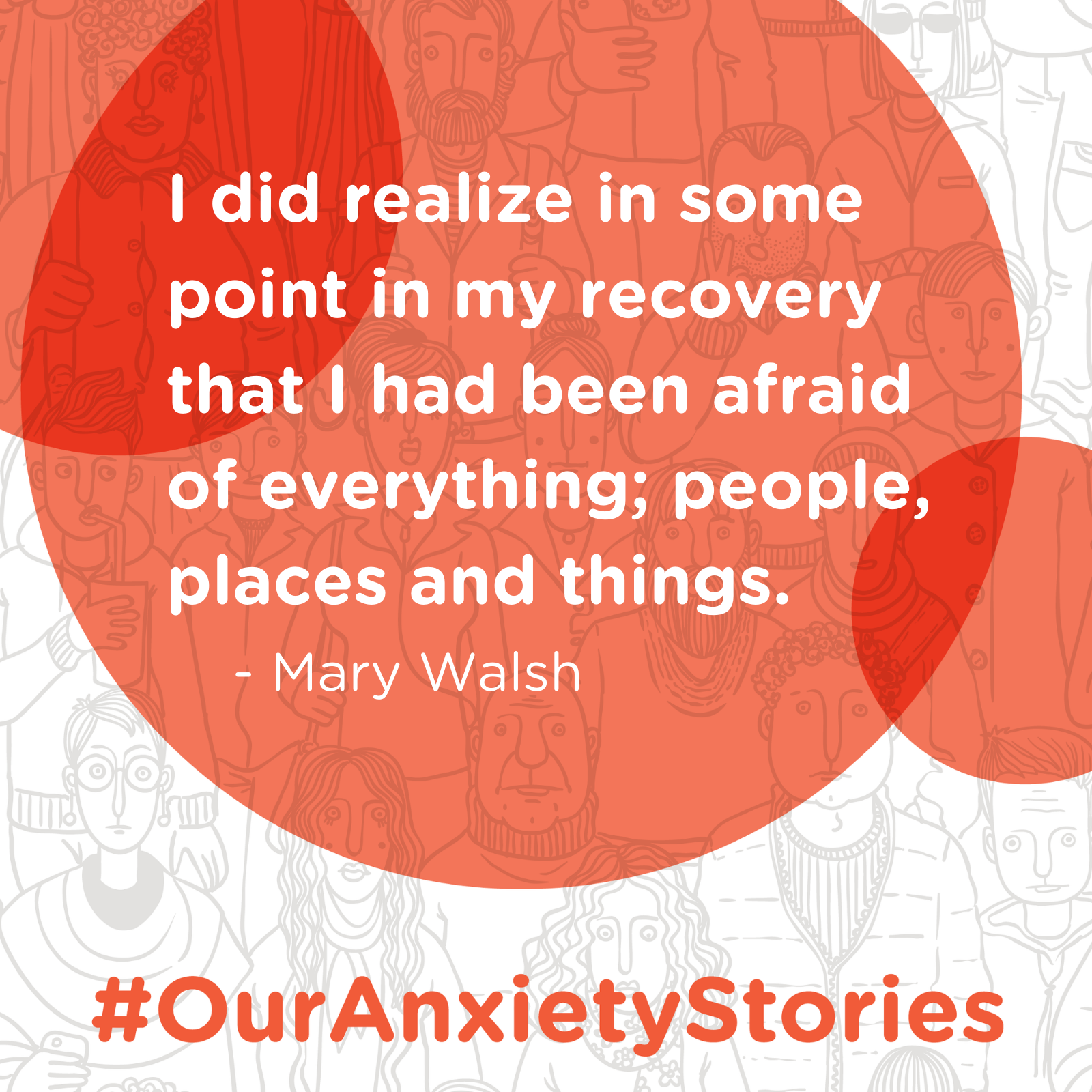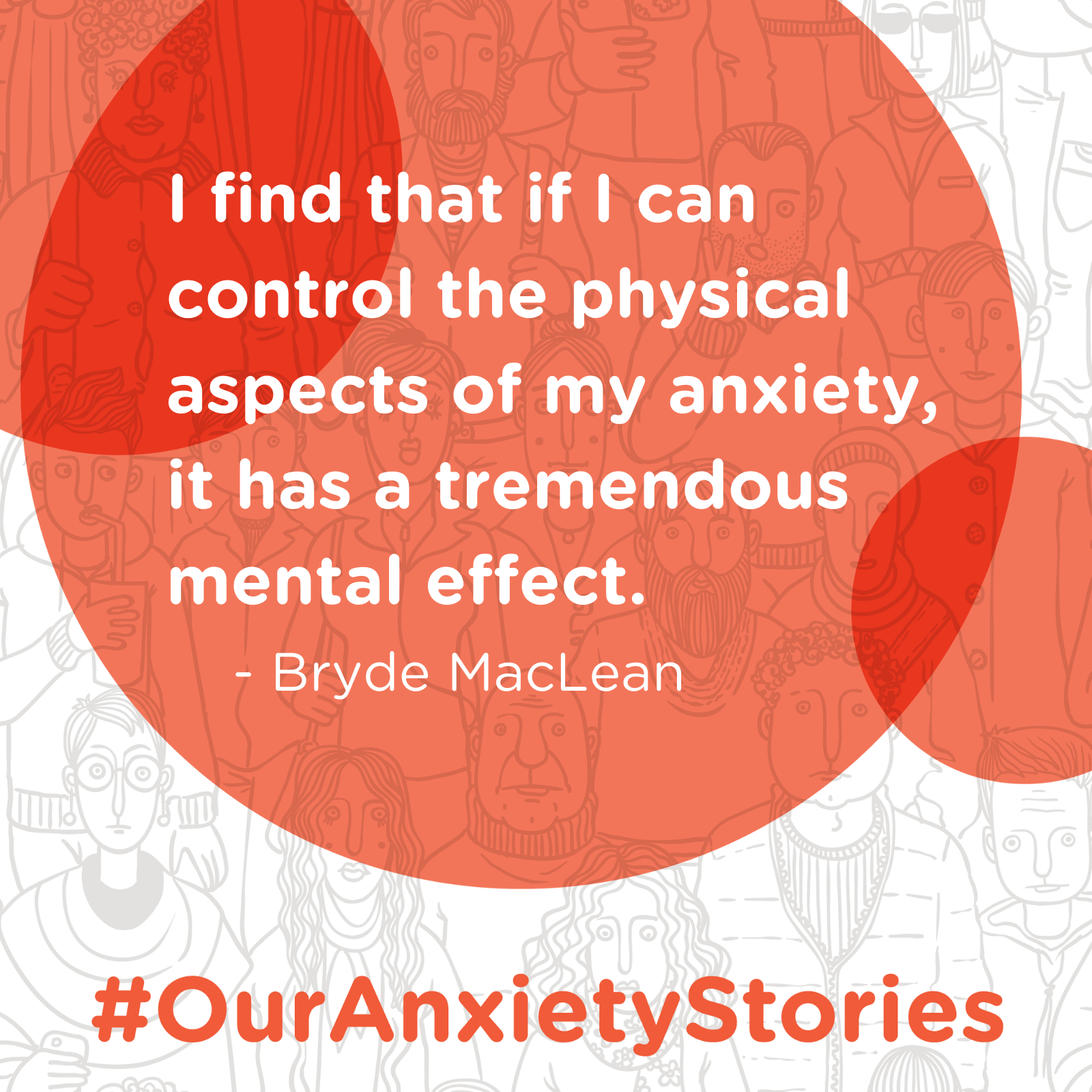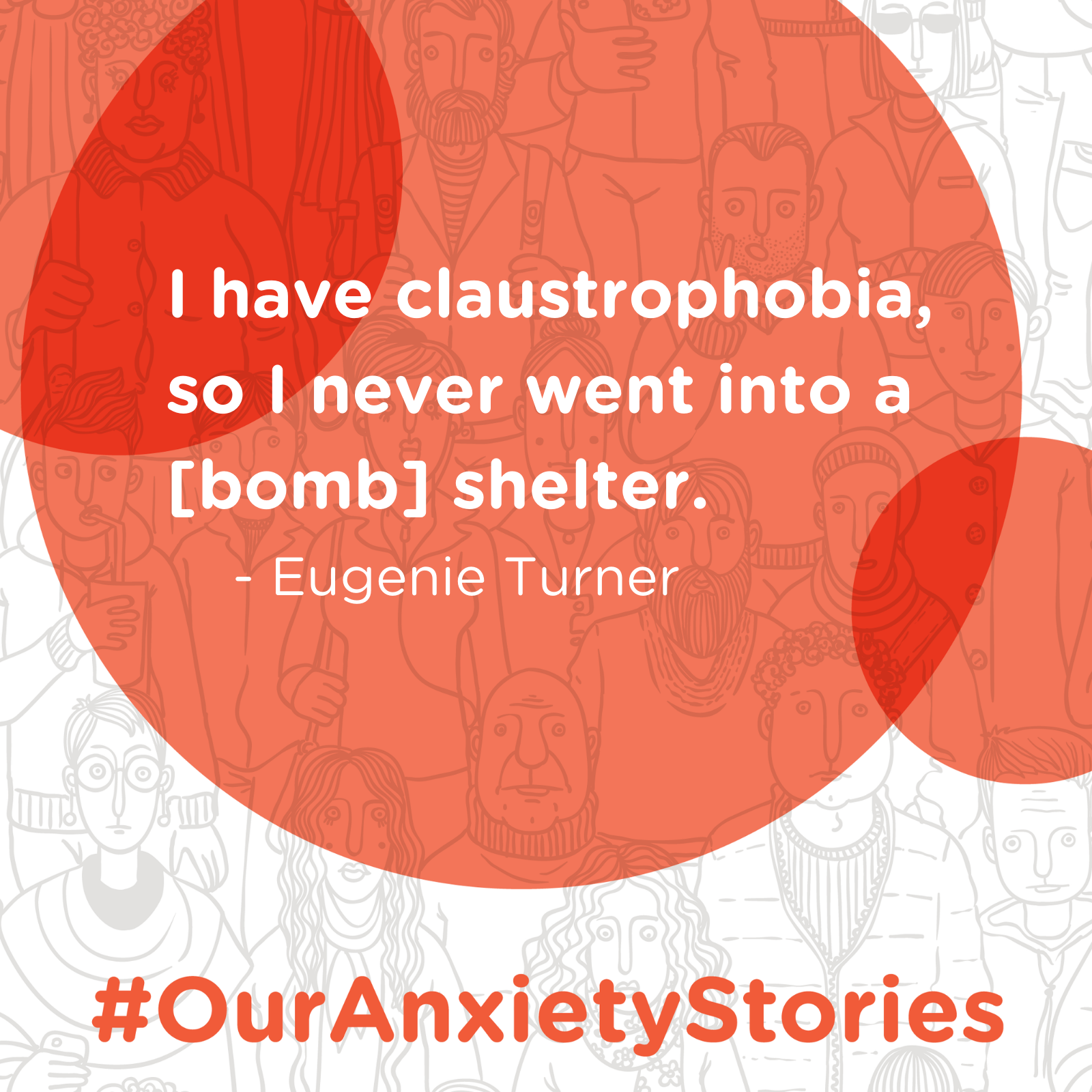Episode Transcript
Speaker 1 00:08 You are listening to our anxiety stories, the anxiety Canada podcast with John Bateman. Check out anxiety canada.com for more totally free anxiety resources including our app Mindshift CBT.
Speaker 0 00:22 <inaudible>.
Speaker 2 00:26 My next guest here is, uh, Mark Virgin. Mark. Can you hear me? How are you? It's great to have you here. Thank you. Yeah. Um, I uh, am starting out all interviews, uh, on this day on our anxiety stories with the basic question. What's your anxiety story?
Speaker 3 00:48 Okay. Well, um, it really, it's been a lifelong journey contending with anxiety, which, uh, you know, when I was a kid my mother always referred me to me as a a worrywart, uh, which was, um, something that, uh, I think I inherited probably from her. Um, and it ended up, um, becoming something that I function at a pretty high level with. I, uh, I was very, uh, in some respects proud of, of the fact that I would drive myself, um, forward propel myself, if you will, particularly early in my professional life by ensuring that I worried about the details at practice. Law and lawyers are very, very much a group that are competitive and you don't like to admit any failing. Um, and of course, having a, uh, a vulnerability like anxiety is not something that you're going to be quick to disclose and instead start to gird yourself and believe that this is something that is helping you in terms of your performance in the workplace.
Speaker 3 02:17 And I had done that for a very long time until one point it started to become criminal and I had to acknowledge the fact that this was something that I was not managing well. And it turned out in my areas of practice, one of which dealing with injury cases, I work a lot with psychiatrists and approached one of them that I had a very good working relationship with. And that's the fact that I was contending with this issue and, uh, and that I needed help. And that's what led me to, uh, actually pursue Gabriel therapy. And from there, uh, the rest is history. I, I finally had to acknowledge just how much anxiety was controlling my life and I wasn't going yet. So that's the short version.
Speaker 2 03:22 Yeah. Um, so how did it, you know, you, you, you were aware of something when you were younger of being a worrywart like you say. Um, and I, I was of course given the same kind of moniker from time to time. Um, uh, how did it manifest then compared to how it manifested once you kind of got your career rolling because you have a very intensive career, um, you know, obviously a lawyers and intensive career, you're very active and a lot of other aspects of your life as well. What kind of symptoms were you experiencing when you, when you realized that it had gone too far?
Speaker 3 03:56 I found that I was getting episodes where I became housebound. I just could not contend with going to the workplace. And by this point in time when it opened, materialize at a truly crippling level, I had built up a practice of 30 people and the wood, it really was overwhelming. I, I probably heard from others today. I was scenario building in my mind. I couldn't, I just couldn't leave. The house was really debilitating. Um, something that I was highly effective at concealing from others that the doctor knows that I couldn't go into work on some occasions was a major red flag and I didn't want to, um, I didn't want to continue on that way. But what was I think most distracting for me, John, was that I had been a very long time since I had actually felt what I would describe as a joyful experience, like a half the happiness levels. That was joy. That to me was actually pretty sad, uh, to, to recognize in myself and I had every reason externally to be happy. I had achieved every Mark of success in most people's eyes, but I didn't have joy and I finally had to go with it because of the anxiety that I was depriving myself.
Speaker 2 05:47 Yeah. And that's one of the, that's one of the very common, uh, you know, things that people mistake is that that success, whether it's financial or whether it's, whether you're a celebrity, whatever your success might be, that that means that your immune, and I think so many people don't understand that fact, that that does not mean that at all.
Speaker 3 06:08 Precisely. Precisely. It, it was one of the things that I have to say in the end game, uh, was the best outcome I could possibly imagine when I finished, we would call graduated from CBT and I, I actually felt joy again. It was so overwhelming. I mean, I, I truly wept with joy because I gotten that, that sense of happiness back and it was profound in terms of the impact for me.
Speaker 2 06:48 Yeah. And that's certainly, you know, in my experience, that's part of the frustration is looking around and you know, your, your kids are there, you know, your wife is there, your house is there and not feeling joy. You know, you're watching favorite hockey team, whatever it is, and not feeling it. For me, that's a very frightening feeling.
Speaker 3 07:05 Yeah. I, I couldn't, I couldn't agree more. Um, and I, I'm very careful to ensure that I tell people it's not that I don't have anxiety anymore, I still have anxiety, but I now have the tools that allow me to function without the kinds of impediments that were being created by my anxiety previously.
Speaker 2 07:33 Um, you know, one thing I'm wondering about, you know, with your opening up in, you know, sort of your advocacy and letting people know that you've been having the you that you have this condition. Did, did you do that within your, you know, your peer group and your, you know, my perception of the law, the law, the business in law and my grandfather was a lawyer and I, it's probably very different from then, but that it's kind of, it's kind of that, it, there's this, you know, mentality of strength, mental strength and uh, did you kind of come clean with all your, your, your partners and the people that you work with or work for?
Speaker 3 08:08 I did. You know, it's become something that I truly believe is important to share with my peers as well as have a number of friends who are judges and you are probably well aware of one of our Supreme court candidates justices has come forward and spoken openly about the fact that he suffered from depression and anxiety. And I think that people who are leaders in the community are doing a disservice if they don't acknowledge and and uh, let others know that they too are sufferers of or halves and sufferers of anxiety and mental illness. It's not a sign of weakness if you particularly, uh, once disclosed and you're able to go and obtain the right help and access resources. As you know, that was one of the things that I felt so fortunate. Yeah. We'll be able to do. Yeah. So they had access to resources.
Speaker 3 09:13 Yeah. I actually just today was trying to, sure. With our office, the <inaudible>, there are free online resources from places such as anxiety Canada and it's one of the reasons I'm such a proponent for anxiety Canada and then involved. Those are your actually I want people to have or accident and uh, and, and I think that when you open up about the fact that you have experienced types of issues, people, people respect actually remarkably pleased with the reception that I've gotten when I've gone out and shared with others. My story, it was quite uh, telling when we did the launch of the new mind shifts app earlier this year and I went on stage and, and told a brief little um, snippet of my story about having had anxiety as counsel and how it was something that lawyers are so hesitant to share and that I had had years of not having particular joy that I now experienced and had actually individuals from a very well known, uh, national law firm come up to me at the event.
Speaker 3 10:46 And they, with pure filled eyes that they too had had this type of an experience that hadn't occurred. Others speak of it in the profession and we've actually, a few of us have made it our objective to make sure that more of these stories are told. I even had a group together at a conference on Thursday of last week and two of our presenters were there on a dental cohost for the lawyers. We would that such a tremendous problem with mental health issues being concealed in our profession for the very reason that you described that there's this focus on having this strong veneer of being courteous to anything including, um, dental health issues. I think it's an imperative that we'd go through, uh, an education process with members of the bar and help them understand that it's okay to eat, that you've been suffering with mental health issues and to it's okay to go and find out how to get help. Yeah. It's, it's a game changer. It's a game changer in terms of my performance in my work by acknowledging that I had it and I'm, I'm going a rocket pace how I was before.
Speaker 2 12:21 Yeah. You, you know, people like you, uh, coming forward with your, with your message and, and the way you advocate is really important and I really appreciate you, uh, being a part of our, our event today. It's been incredibly insightful and very helpful. Mark. Thanks very much.
Speaker 3 12:37 Well, thank you so much, John, for doing such an awesome job today in doing the interview
Speaker 1 12:43 for giving up your time that parked, appreciated people. No problem. Have a great day.
Speaker 0 12:47 <inaudible>
Speaker 1 12:50 thanks for listening to our anxiety stories, the anxiety Canada podcast with Jon Bateman. Check out anxiety canada.com for more anxiety resources, including our app mind-shift CBT. And if you like what you hear, please consider making a donation. This podcast is made possible by listeners like you. Until next time,
Speaker 0 13:10 <inaudible>.


